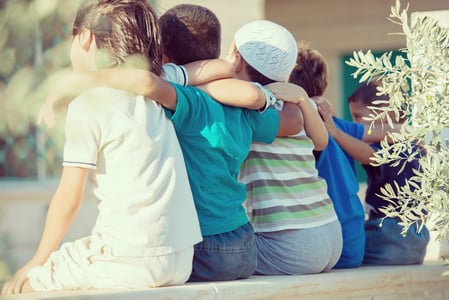
I’ve been using the slow weeks around the holidays to catch up on the latest CLASS™ research findings. There’s a lot that I’d like to get to in another post (like this! And this!). However, I came across a study by a research group I read up on from time to time. Their work is so fascinating that I just had to share.
Elise Cappella and her colleagues dig into the intangible ways that classroom environments can influence learning and well-being. They focus on peer relationships, bullying, and how teachers influence the ecology of the classroom.
The bad news:
- Children who are bullied have weaker social ties with other children in their classrooms.
- The social isolation they experience can lead to negative outcomes as they progress through school.
The good news:
- In classrooms with stronger Emotional Support, victimized children have closer relationships with their peers[1]. which may buffer them from the negative effects of bullying.
Hooray for warm, supportive, sensitive teachers!
In a follow-up study[2], the researchers looked at how peer networks affect classroom engagement, an important predictor of achievement. Some classrooms are very hierarchical—a few children are popular and many others are left out. Others are more equal—many children are friendly with lots of other children in the classroom. The study found that children tend to be more engaged in learning in classrooms that are more equal.
This effect was especially strong in classrooms that had high Classroom Organization. So Classroom Organization can boost the benefits of a more equal social environment and contribute to better engagement along the way.
Hooray for productive, well-organized, engaging teachers!
I love studies that look at how teacher-child interactions support better peer relationships and social outcomes. It takes a lot of skill on the part of researchers to give these intangible things—social relationships, peer ecologies—the attention they deserve. What kinds of research findings would you like to hear more about? Let me know in the comments!
Notes
1. Cappella, E. & Neal, J. W. (2012). A classmate at your side: Teacher practices, peer victimization, and network connections in urban schools. School Mental Health, 4, 81-94.
2. Cappella, E., Kim, H. Y., Neal, J. W., & Jackson, D. R. (2013). Classroom peer relationships and behavioral engagement in elementary school: The role of social network equity. American Journal of Community Psychology, 52, 367-379.
